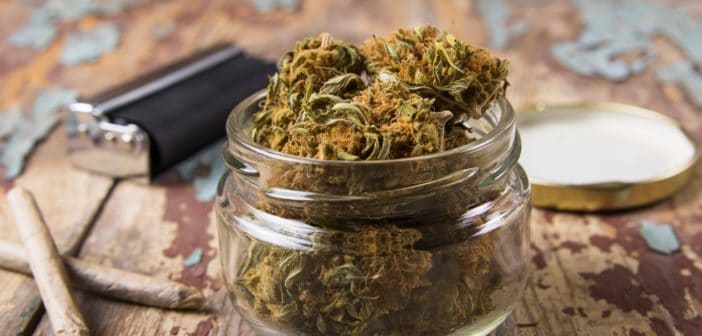 San Francisco and San Diego Wipe Out Pot Convictions
San Francisco and San Diego Wipe Out Pot Convictions
In a move that’s both surprising and unprecedented, San Francisco and San Diego will retroactively apply California’s Proposition 64 to scores of old marijuana convictions. According to The New York Times, the cities will use the state’s pot legalization law to reduce or expunge thousands of misdemeanors and felonies that go back several decades. What’s more is that the convictions will be forgiven automatically in those cities. “I don’t think it’s the right thing to do to make people pay lawyers’ fees and jump through a bunch of hoops to get something they should be getting anyway,” San Francisco’s attorney general George Gascón said on Wednesday. Still, while many applaud the decision, others feel that those who were convicted should live with the consequences of their actions. “In all the other states, the process has been messy,” Robert Mikos, a professor at Vanderbilt University who studies marijuana law and policy, told the Times. “But whether people agree with what they did or not, California at least addressed it and there’s value in that.”
Trump Honors Police Officer Who Adopted An Addict’s Baby
New Mexico police officer Ryan Holets was recognized during President Trump’s State of the Union address on Tuesday. Trump noted that he and his wife Rebecca “embody the goodness of our nation” after adopting the baby of a pregnant woman about to shoot up heroin behind a store. “Last year, Ryan was on duty when he saw a pregnant, homeless woman preparing to inject heroin,” Trump said. “When Ryan told her she was going to harm her unborn child, she began to weep. She told him she didn’t know where to turn, but badly wanted a safe home for her baby.” CNN reported that the entire chamber gave Holets, his wife and their 3-month-old baby Hope a standing ovation.
FDA to Curb Anti-Diarrhea Drug Abuse
The FDA announced Tuesday that it will be restricting the sales of anti-diarrhea drugs like Imodium AD. The drug’s main ingredient is the opioid loperamide, which has spurred many drug addicts to abuse the over-the-counter medication. With Imodium AD available in both liquid and pill forms, the FDA is pushing manufacturers to redesign their packaging, not to mention lowering the amount of doses available per unit. “Ordinarily, loperamide only works on the digestive system, slowing it down temporarily. But in very high doses, it can also affect the central nervous system, just like the opioids people get addicted to,” a Gizmodo story said. “In recent years, the FDA and doctors have noticed people using loperamide—along with other drugs—to achieve a high; others have instead used it as a home remedy to stave off withdrawal symptoms, as an unapproved alternative to drugs like methadone.”
Senators Investigating Trump’s “Weak” Opioid Crisis Response
Led by Elizabeth Warren, several Democratic senators have appealed to the Government Accountability Office (GAO) to investigate President Trump’s declaration of a public health emergency in response to the nation’s opioid epidemic. The website Vox exclusively scored a copy of the senators’ request, which asks the GAO to examine what specific actions the Trump administration has actually made to combat the crisis. “Given the severity of the crisis, we have grown increasingly concerned by reports that the President has done little to make use of his public health emergency declaration, leaving state and local communities without the resources they need to fight the opioid epidemic,” the letter read. While Vox itemized the few known steps Trump has taken, the site echoed the senators: “[There is] no major new funding, nor a push for more funding. No big new strategy. To the extent any money was allocated, it was largely from policies that preceded Trump—such as the Cures Act, which passed in 2016 with then-President Barack Obama’s approval and allocated $1 billion over two years to the opioid crisis.” One drug policy expert put an even sharper point on Trump’s actions so far: “He’s done nothing.”
US Opioid Crisis Hurts the Rest of the World
With 42 Americans dying every day due to opioids, there’s an even darker subtext to the national crisis, the BBC noted. “While the US tries to deal with its over-use of [prescription painkillers], millions of people in other parts of the world are dying in agony because they can’t get hold of them,” the story said. It’s a symptom of global inequity, the BBC reported, citing startling statistics like 90% of all the planet’s morphine is consumed by the world’s richest 10%. In fact, while the US “gets 30 times more opioid pain relief medication than it needs,” countries like India get less than 5% of what it needs. “For many decades, the discussions at the international level around drugs were completely focused on illegal drugs, to the point where the fact that these same substances also have important medical uses was just completely off the radar,” a spokesperson for Human Rights Watch said, calling for a better balance between prescription and pain. As the BBC story observed, more people are effected by the lack of prescription painkillers than the number of people struggling from opioid addiction.
Sponsored DISCLAIMER: This is a paid advertisement for California Behavioral Health, LLC, a CA licensed substance abuse treatment provider and not a service provided by The Fix. Calls to this number are answered by CBH, free and without obligation to the consumer. No one who answers the call receives a fee based upon the consumer’s choice to enter treatment. For additional info on other treatment providers and options visit www.samhsa.gov.




